Is sports betting legal in the Philippines and abroad? It’s a question many players ask before placing their first bet. With gambling laws varying across Asia, the U.S., and Europe, understanding the legal status of sports betting is essential to play safely, avoid penalties, and choose licensed platforms-especially if you’re betting from the Philippines or overseas.
Is sports betting legal in the Philippines?
Yes, sports betting is legal in the Philippines when offered by operators licensed by PAGCOR. The industry is regulated under a clear legal framework and monitored by government authorities. To understand how it works, it’s essential to examine PAGCOR’s role, licensed platforms, and how international sportsbooks operate within this system.
PAGCOR and licensed operators
In the Philippines, the highest authority responsible for regulating and licensing legal betting is the Philippine Amusement and Gaming Corporation (PAGCOR). This government-owned agency manages all forms of legal sports gambling within the country, including both retail sportsbook outlets and online betting platforms.
Only operators that have obtained official licenses from PAGCOR are recognized as a legal online sportsbook. Well-established brands such as MegaSportsWorld serve as prime examples of fully licensed and compliant operations. Additionally, some international platforms – as long as they do not violate domestic laws or engage in unauthorized advertising – may operate in a “tolerated” zone, even without direct supervision by PAGCOR.
By betting through licensed operators, players gain stronger protection under sports betting regulation, enjoy secure payouts, and have access to proper complaint resolution mechanisms when disputes arise.

Offshore betting and the legal gray area
While sports betting legality in the Philippines is clearly established, a gray area still exists-where offshore betting platforms operate without PAGCOR approval, yet are not explicitly banned either.
Players using these platforms may enjoy access to a wider variety of games, but they also face greater risks when it comes to data security, financial transactions, and user rights. Some of these websites may hold licenses from Malta, Curacao, or the Isle of Man, but they are not recognized as lawful operators under Philippine law.
This is why understanding gambling law by state, and more specifically, Philippine regulations, is essential in determining whether you can legally bet on sports through a given platform.
In short, while you can fully participate in legal sports gambling within the Philippines through locally licensed operators under PAGCOR, using international platforms requires careful legal consideration. The gray area may still exist-but prioritizing licensed, domestic platforms is the safest way to protect yourself when engaging in sports betting in this country.

Online sports betting in the Philippines
As the demand for online entertainment continues to grow, online sports betting has quickly become one of the most popular forms of wagering among players in the Philippines. However, many still question: is online sports betting legal, especially with the growing presence of international sportsbooks targeting local users.
To answer this properly, it’s important to understand the country’s legal framework and the essential safety criteria when choosing a betting platform.
The legal status of online sports betting
In the Philippines, online sports betting is legal when offered by operators holding valid licenses. Platforms licensed by PAGCOR are allowed to run online sportsbooks either for Filipino citizens or for international players, depending on the type of license granted.
Some foreign operators are also accepted if they hold licenses from reputable international authorities such as the Malta Gaming Authority (MGA) or Curacao eGaming, and as long as they do not engage in unauthorized advertising within the country. However, such arrangements still fall within a flexible legal space and are not directly overseen by PAGCOR.
Therefore, the answer to “can you legally bet on sports online in the Philippines?” is yes – but only if you choose a properly licensed platform that complies with current legal standards.
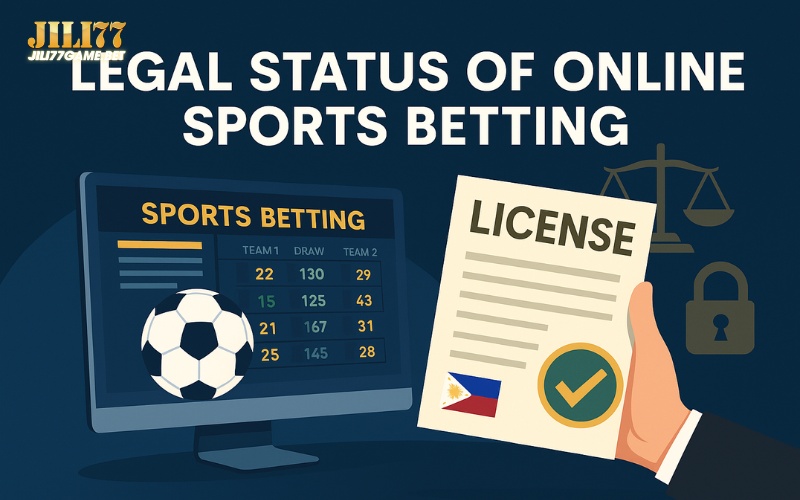
How to choose a safe sportsbook
To participate in a legal online sportsbook safely, it’s important to evaluate several key factors:
- Valid licensing: Prioritize sportsbooks with official certification from PAGCOR or a reputable international license.
- Player protection policies: Look for features like betting limits, risk warnings, and compliance with responsible sports gambling laws.
- Payment security: Ensure transparent deposit/withdrawal methods, SSL encryption, and two-factor user authentication.
- Verified user feedback: Check player communities, forums, or trustworthy review sites for real-world evaluations.
For example, the Jili77 platform currently offers a comprehensive online betting ecosystem, equipped with SSL encryption, a transparent account verification process, and 24/7 player support – all essential elements to ensure you’re engaging in sports betting legally and securely.
In short, while sports betting legality in the Philippines allows for online participation, players must remain vigilant in selecting their platform. Betting on a trustworthy site is not only about following the law – it’s the first step toward protecting your money and personal data.
Learn more about legal Jili77 sports betting options trusted by Filipino players.
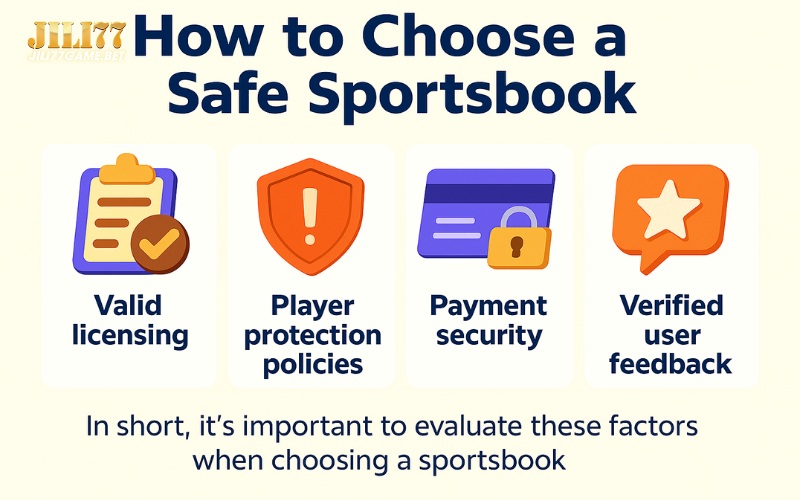
Is sports betting legal in the United States?
In recent years, the legal framework surrounding sports betting in the United States has undergone significant transformation. While most states once prohibited the activity, today many have officially legalized it. So, is sports betting legal in the U.S.? The answer depends on which state you reside in.
The 2018 Supreme Court decision and a historic shift
Before 2018, sports betting in the U.S. was governed by the Professional and Amateur Sports Protection Act (PASPA), which strictly limited betting activities outside of a few states like Nevada. However, a landmark moment came with the U.S. Supreme Court’s ruling in Murphy v. NCAA, which declared PASPA unconstitutional.
As a result, each state was granted the authority to decide whether to legalize sports betting, marking a turning point in nationwide sports betting regulation. This decision effectively reshaped the entire landscape of U.S. sports betting laws.
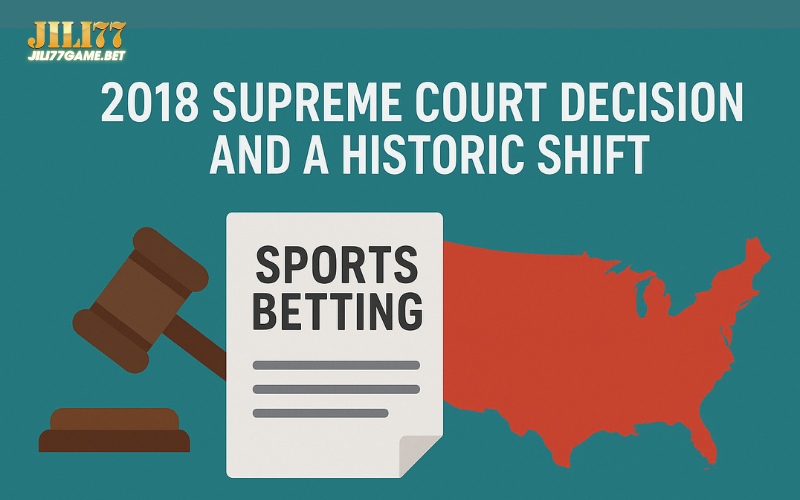
Federal vs state gambling laws: What players need to know
In the U.S., understanding federal vs state gambling laws is essential to grasp the full picture of the legality of betting on sports. While federal law no longer outright bans sports betting, this doesn’t mean you can place bets anywhere you wish.
Currently, there’s a clear divide between states:
- Some, like New Jersey, Pennsylvania, and Illinois, have fully legalized legal sports gambling, both in-person and online.
- Others are still in the process of drafting, approving, or rejecting relevant bills.
- A few states still ban all forms of sports betting, whether online or offline.
So if you’re wondering, “can you legally bet on sports in the U.S.?”, the answer depends entirely on your state of residence.
As of now, over half of U.S. states have legalized some form of sports betting. However, due to differing state by state betting laws, players must understand the legal status of sports wagering in their specific region.
The transformation brought about by the Supreme Court PASPA decision didn’t just give rise to a multibillion-dollar industry-it also opened the door to safer, more transparent betting for players. If you’re a Filipino living, studying, or working in the U.S., having a clear understanding of sports betting legality is a must before placing your first wager.
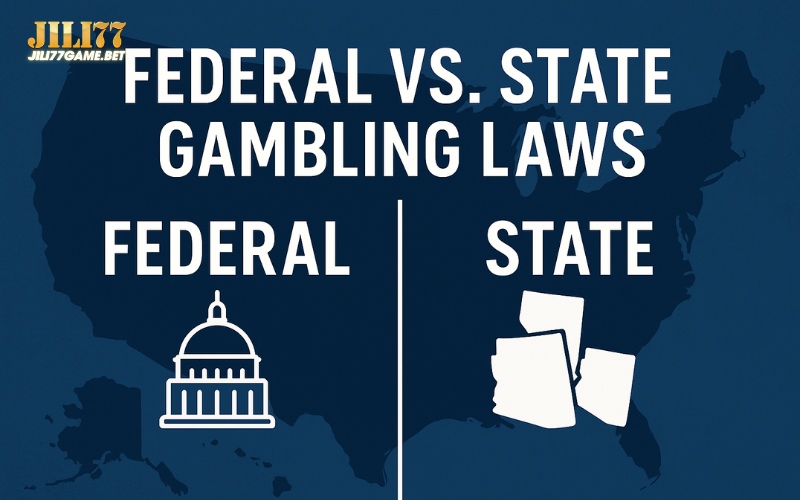
How many states allow sports betting?
Following the U.S. Supreme Court’s repeal of PASPA in 2018, many states quickly amended their laws to legalize sports wagering. But how many states are sports betting legal now? And how do the types of betting vary across state lines?
Number of states with legalized sports betting
As of early 2025, 39 U.S. states, along with Washington D.C. and Puerto Rico, have officially legalized sports betting in some form. However, not all states follow the same model:
- 31 states permit both online and in-person (retail) betting.
- The remaining states have restricted legalization, often allowing betting only at specific locations like licensed casinos or tribal gaming properties.
This variation reflects the diversity of gambling law by state, which players must understand before participating in any form of legal sports gambling.
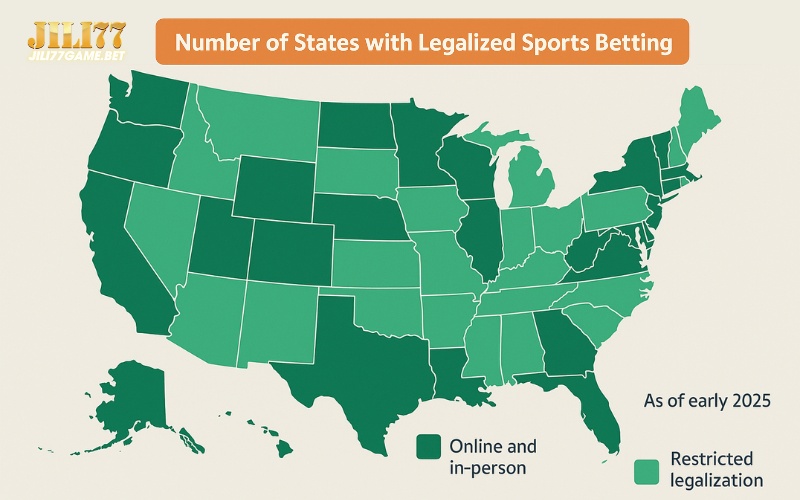
Differences between online and in-person betting
One important distinction is that not every state allows online betting. Some permit a full legal online sportsbook model, while others limit betting to physical venues.
For example:
- New Jersey, Michigan, and Colorado: Offer full online betting access through multiple licensed operators.
- Mississippi: Allows sports betting only within licensed casino premises; home-based online wagers are not supported.
- Utah and Idaho: Still maintain a full prohibition on all forms of sports betting.
This is why it’s essential for players to regularly check the latest sports betting legalization map or consult reliable sources like a bill tracker sports betting tool to avoid running afoul of local laws.

Why Filipinos should care
Many Filipinos living, working, or studying in the United States turn to sports betting for entertainment. However, if you’re not aware of where is sports betting legal, you could unknowingly violate local laws. Furthermore, traveling between states can also affect your legal right to place bets.
To stay safe, always choose a platform that is officially licensed to operate within your state. Check the legal status of sports betting in your current residence or temporary location – doing so not only keeps you out of legal trouble but also protects your financial interests.
In summary, the number of states that allow sports betting continues to grow. But each state implements its own system – from fully legalized online sportsbooks to in-person betting only. Players must stay informed about state-by-state betting laws to engage legally and safely.
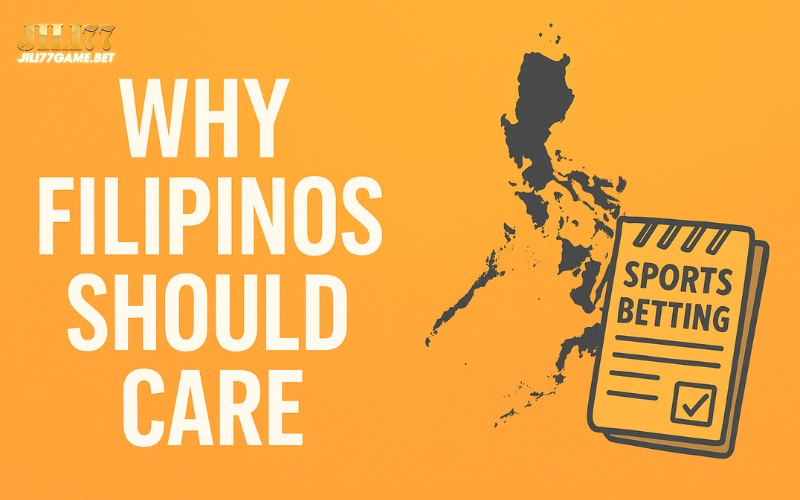
What is the legal age for sports betting?
One of the most common questions from new players is: at what age is sports betting legal? The answer isn’t straightforward, as each country – and even each U.S. state – has its own minimum age requirement for placing sports wagers. Understanding age limits is the first step to ensuring that your betting on sports is lawful and compliant with local laws.
Is sports betting legal for 18 year olds?
Yes – but not everywhere. In some countries, individuals aged 18 and older can legally place bets. In others, the minimum age is 21. Knowing this distinction helps players avoid unintentional violations.
Here’s a table summarizing legal betting age by region:
| Region | Legal Age | Notes |
| Philippines | 21+ | Under PAGCOR rules, only individuals aged 21+ may legally place bets |
| United States | 21+ (most) / 18+ (some) | States like Montana and Rhode Island allow legal betting from age 18 |
| International | Varies by country | Some countries do not specify a legal age or allow betting at 18+ |
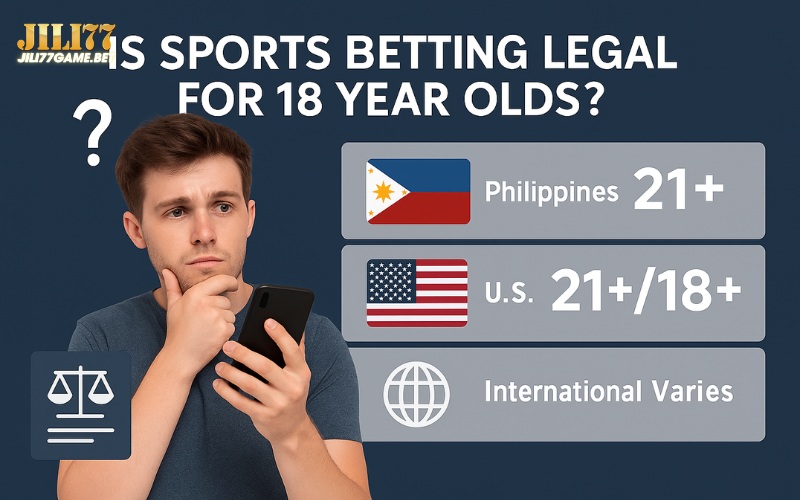
Why age restrictions matter
Legal age requirements are a core element of any sports betting regulation system. They are designed to:
- Protect minors from developing harmful gambling behaviors
- Ensure that players are financially responsible adults
- Enforce responsible sports gambling laws specific to each jurisdiction
Violating age restrictions may result in account suspension or legal consequences, depending on local laws.
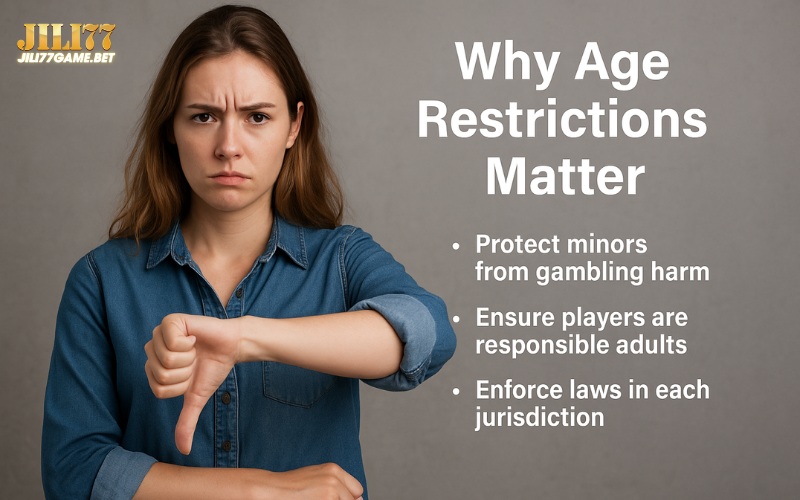
Special note for Filipino players
In the Philippines, while 18 is the legal age for employment, you are not allowed to engage in sports betting until you turn 21. Platforms like Jili77 strictly enforce this rule and use identity verification systems to prevent underage access.
In conclusion, if you’re asking, “is sports betting legal for 18 year olds?”, the answer is: “It depends on where you are.” Understanding local law not only keeps you compliant but also protects your account, personal information, and funds from unnecessary risk.
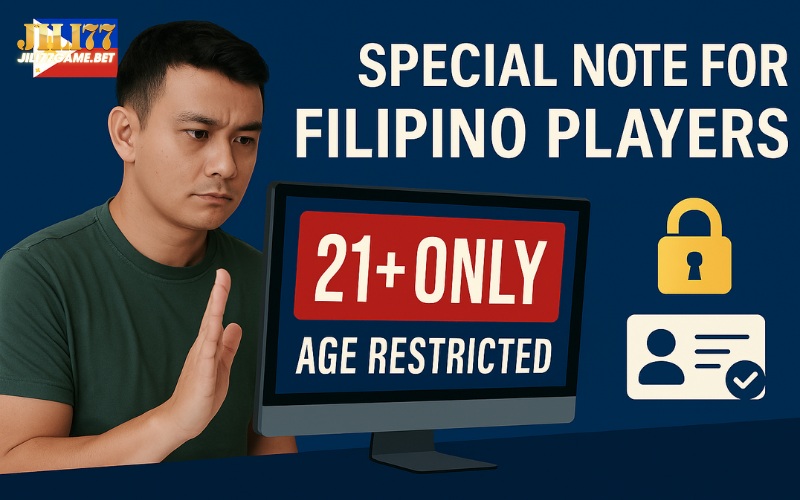
Sports betting legality in selected US states
The sports betting legality in the United States varies significantly from one state to another. The table below highlights frequently searched states on Google, helping you understand where sports betting is legal and under what conditions.
| State | Legal status & notes |
| New York | Sports betting has been legal since 2022, covering both online and retail formats. If you’ve been wondering is sports betting legal in New York, the answer is yes – players can place bets through apps like FanDuel, DraftKings, and Caesars. |
| California | As of now, California has not legalized sports betting. Proposals in 2022 were rejected by voters. So, is sports betting legal in California? Not yet – and no timeline has been set for legalization in the near future. |
| Florida | After reaching a deal with Hard Rock Digital, betting was briefly available in Florida, but operations are currently suspended due to ongoing legal disputes. If you’re asking is sports betting legal in Florida, be sure to follow court and legislative updates. |
| Texas | Sports betting remains illegal in Texas at this time. Although several legislative proposals have been introduced, legal betting is still not available. So, is sports betting legal in Texas? The answer is still no. |
| Virginia | One of the early adopters of legal sports betting. If you’re asking is sports betting legal in Virginia, the answer is yes – both online and in-person betting are permitted through licensed operators. |
| Minnesota | Sports betting is still under legislative review in Minnesota. Although bills are being debated, it has not yet been legalized. Wondering is sports betting legal in Minnesota? Not yet – but discussions are ongoing. |
| Washington | Sports betting is legal only at tribal-owned casinos, with no broad online rollout. So if you’re searching is sports betting legal in Washington, the answer is yes – but only under specific tribal frameworks. |
U.S. sports betting laws change rapidly year by year. Readers are advised to check reliable sources like Legal Sports Report or consult the official sports betting legalization map for real-time updates by state.
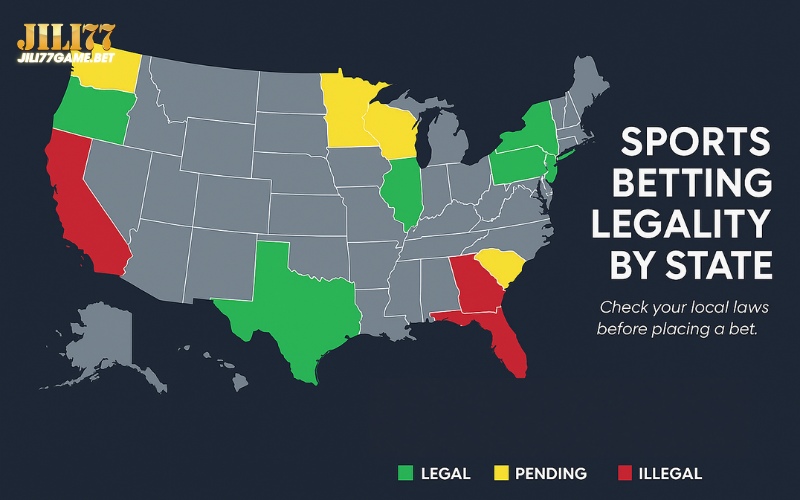
How to verify if a sportsbook is legal
With hundreds of new betting platforms launching each year, choosing a legal online sportsbook is critical for your long-term safety, transparency, and player protection. But how can you tell if a sportsbook is truly legal? Whether you’re betting from the Philippines or anywhere else, here are the non-negotiable criteria to check.
Clear and valid license
The first and most important factor is a valid operating license. A legitimate sportsbook must hold a license from a recognized regulatory authority such as:
- PAGCOR (Philippines)
- MGA – Malta Gaming Authority
- Curacao eGaming
- UK Gambling Commission
These licenses ensure that the operator complies with strict sports betting regulation, including minimum capital requirements, player protection policies, and anti-money laundering technology. If a platform fails to publish licensing details or is vague about it, consider it a red flag.
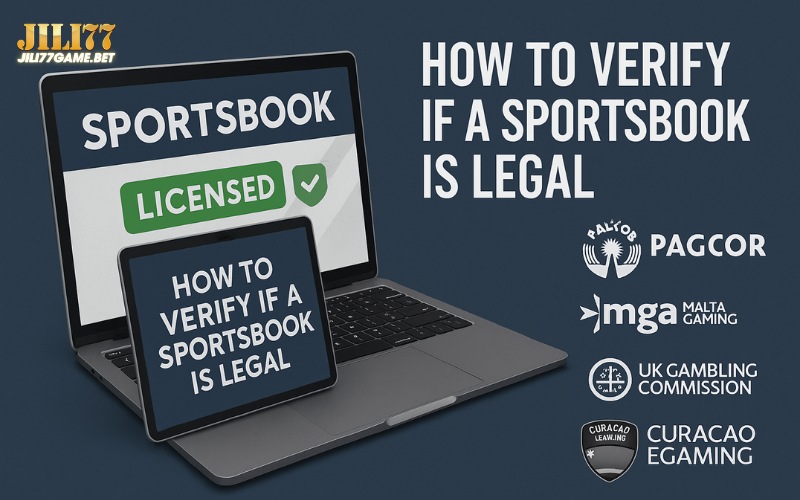
Player protection policies
A lawful sportsbook is not just about legality – it’s also about protecting users from financial risks and gambling addiction. Look for platforms that offer:
- Betting/budget limit settings
- Session time alerts
- “Self-exclusion” policies
- Player help guides or support hotlines
These features show compliance with responsible sports gambling laws, which every responsible bettor should value.

Secure data and payment systems
Online betting involves depositing money, verifying your identity, and sharing personal data. A legal sportsbook must:
- Use SSL encryption (128-bit minimum)
- Support two-factor authentication (2FA)
- Offer transparent payment methods via licensed financial partners
- Ensure fair and timely withdrawals
At Jili77, our security systems meet the highest industry standards, protecting Filipino users from data breaches and unauthorized third-party transactions.
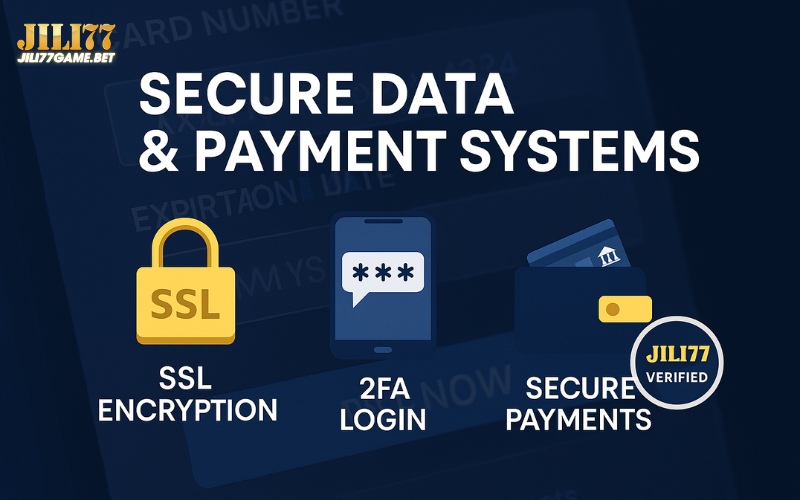
Reputation and community feedback
Lastly, don’t ignore real-world credibility. A licensed platform that receives frequent negative feedback is still not trustworthy. You should review:
- Feedback from trusted gambling forums
- Social media or blog mentions
- Listings on recommended sportsbook directories in the Philippines
If you’re asking can you legally bet on sports on a specific platform – start by checking these four areas: licensing, player protection, security systems, and real user feedback. Don’t be swayed by flashy promotions. Choose a platform because you know it operates by the rules – and respects yours.
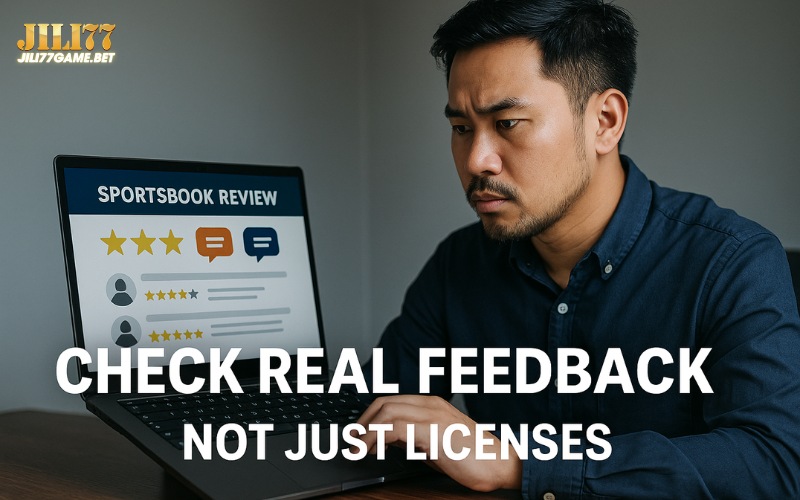
Global overview of betting laws
As sports betting continues to evolve into a global industry, players – especially Filipinos living or working abroad – need to understand the sports betting legality in different countries. Knowing where it’s allowed and where it’s strictly prohibited can help you make informed, lawful decisions when participating in cross-border gambling.
Countries where sports betting is legal
Here are some major markets where legal sports gambling is not only permitted but strictly regulated by national authorities:
| Country | Legal status | Notes |
| United Kingdom (UK) | Legal, with nationwide licensing | Regulated by the UK Gambling Commission |
| Australia | Legal, with restrictions on promotions | Bonus offers and cashback banned for new players |
| Canada | Legal, regulated by provinces | Ontario launched the first regulated online sportsbook |
| Italy | Legal, with national licensing system | Managed by ADM (Agenzia delle Dogane e dei Monopoli) |
| Philippines | Legal, with PAGCOR licensing | Only players aged 21+ are allowed to bet |
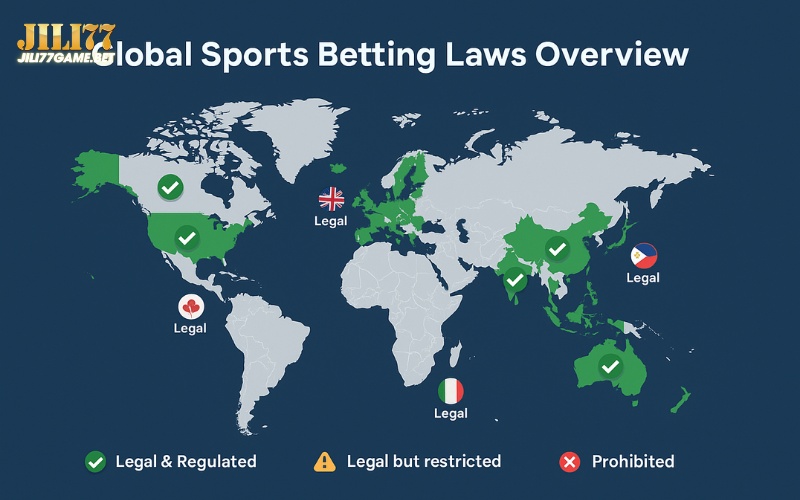
Countries where sports betting is banned or highly restricted
On the other hand, several regions either prohibit sports betting completely or enforce severe penalties for any form of gambling:
| Country | Legal status | Notes |
| UAE | Completely banned | All forms of betting are considered criminal offenses |
| Qatar | Banned under Islamic law | No licensed betting platforms are permitted |
| Singapore | Mostly banned, limited exceptions | Only Singapore Pools and Singapore Turf Club are allowed under strict conditions |
| North Korea | Absolute ban | No form of betting is permitted under any circumstance |
| Indonesia | Fully prohibited under Islamic law | Punishable by administrative fines or imprisonment |
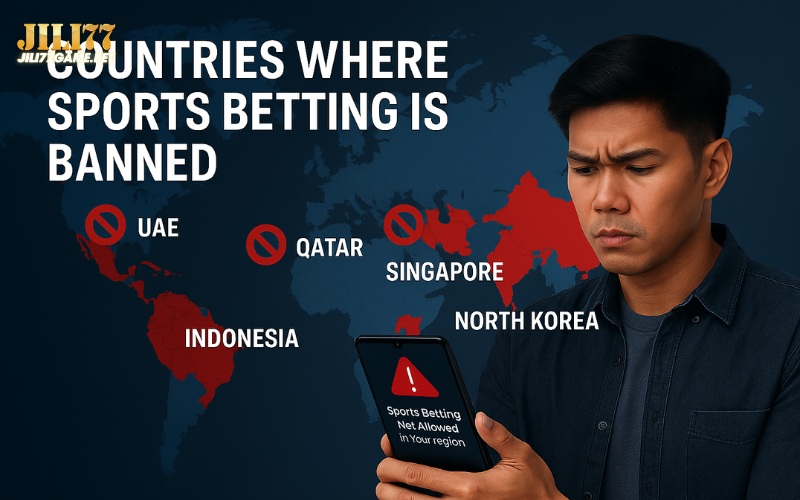
Important note for cross-border players
If you’re a Filipino living, traveling, or working abroad, don’t assume that online sports betting is automatically legal – even when using an international platform.
Some platforms operate across multiple countries under licenses from Curacao, MGA, or the Isle of Man. However, this does not guarantee legality in your location. Every country has its own online betting law, and many governments restrict access or block IPs of unlicensed gambling sites.
Can you legally bet on sports while overseas? It depends entirely on local regulations. Always verify the gambling law by state or country before placing any bets to avoid unintended legal trouble.
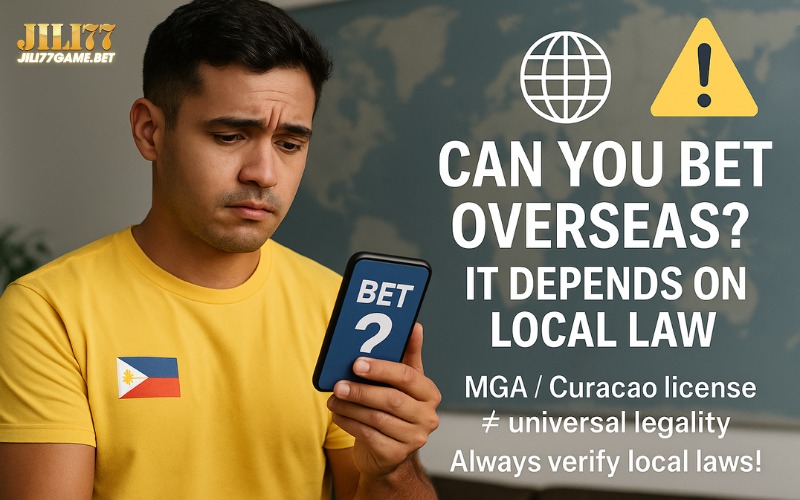
Why legal betting is important
In today’s fast-moving world of online gambling, choosing a legal sportsbook is more than just obeying the law – it’s how you protect yourself. Whether you’re in the Philippines or any other country that permits sports betting, understanding the importance of licensed platforms is essential.
Protecting players from legal and financial risks
When you place bets through an unlicensed platform, you’re risking not only your funds but also your personal data. In the event of a dispute, there’s virtually no legal mechanism to help you recover your losses. On the other hand, licensed sportsbooks – like Jili77 – are required to follow strict sports betting regulation that ensures:
- Transparency in how bets and outcomes are processed
- Guaranteed on-time payouts
- 24/7 player support through dedicated customer service channels
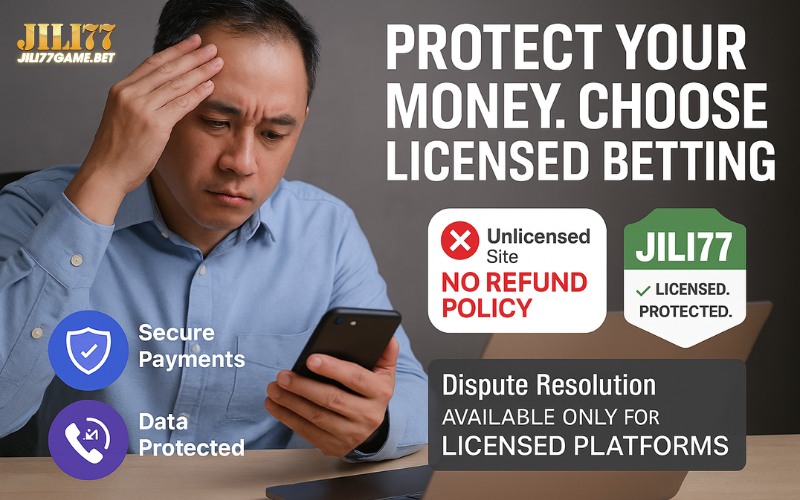
Guaranteeing payout rights and dispute resolution
One of the key benefits of choosing legal sports gambling is that your rights as a player are protected by law. A legitimate sportsbook is required to clearly disclose:
- Bonus payout policies
- Withdrawal processing times
- Transparent dispute resolution procedures, monitored by regulatory authorities
At Jili77, players are fully supported in every situation. Each transaction comes with a reference ID, a complete history log, and a firm commitment to timely payouts – with no unnecessary delays.

Enhancing fair and responsible gaming experiences
Responsible sports gambling laws are more than just slogans – they represent a firm commitment from trustworthy platforms to protect players from risks such as gambling addiction, financial overreach, and emotionally driven betting behavior.
A legal sportsbook typically provides tools and safeguards such as:
- Time and budget limit settings
- Risk alerts for extended or irregular play
- Clear guidelines to help players manage their betting habits responsibly

Building long-term trust with a reputable brand
Choosing a licensed sportsbook isn’t just about safety – it’s about placing your trust in the right hands. With over a decade of industry experience and full certification from PAGCOR, Jili77 has become a trusted destination for thousands of players in the Philippines and across Asia.
In conclusion, whether you’re new to betting or a seasoned player, wagering through a legal sportsbook is the most crucial step to ensure a fair, secure, responsible, and law-abiding experience. If you’re looking for a platform that meets all these criteria, Jili77 is a top choice worth your consideration.

So, is sports betting legal in the Philippines and abroad? The answer depends on where you play-and how. From Asia to the U.S., gambling laws vary by country and state, directly impacting your rights and protections as a player.
That’s why choosing a licensed platform like Jili77game.bet is the smartest move. We offer fully legal, transparent, and secure sports betting services designed for Filipino players at home and overseas.
Legal sports gambling isn’t just about following rules-it’s about playing safely, responsibly, and with confidence. If you’re ready to bet smart, Jili77 is here to support every step of your journey.

JILI77 is an online gaming platform offering a variety of Slot game, casino games and sports betting, known for its secure environment and attractive bonuses. #jili777 #jili777slot #jili777ph #jili777casino. Website: https://jili77game.bet/
Address: 111 Banana Is, Quezon City, Metro Manila